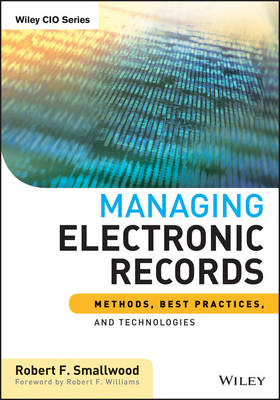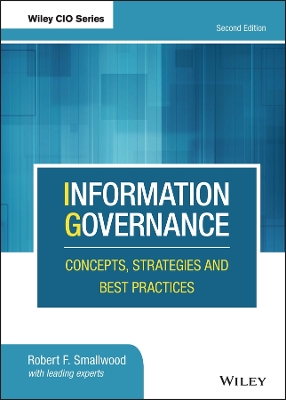Wiley CIO
1 primary work • 2 total works
Book 594
Managing Electronic Records is filled with current, critical information on e-records management methods, emerging best practices, and key technologies. * Thoroughly introduces the fundamentals of electronic records management * Explains the use of ARMA's Generally Accepted Recordkeeping Principles (GARP(R)) * Distills e-records best practices for email, social media, and cloud computing * Reveals the latest techniques for e-records inventorying and retention scheduling * Covers MS SharePoint governance planning for e-records including policy guidelines * Demonstrates how to optimally apply business process improvement techniques * Makes clear how to implement e-document security strategies and technologies * Fully presents and discusses long term digital preservation strategies and standards Managing e-records is a critical area, especially for those organizations faced with increasing regulatory compliance requirements, greater litigation demands, and tightened internal governance. Timely and relevant, Managing Electronic Records reveals step-by-step guidance for organizing, managing, protecting, and preserving electronic records.
The essential guide to effective IG strategy and practice
Information Governance is a highly practical and deeply informative handbook for the implementation of effective Information Governance (IG) procedures and strategies. A critical facet of any mid- to large-sized company, this “super-discipline” has expanded to cover the management and output of information across the entire organization; from email, social media, and cloud computing to electronic records and documents, the IG umbrella now covers nearly every aspect of your business. As more and more everyday business is conducted electronically, the need for robust internal management and compliance grows accordingly. This book offers big-picture guidance on effective IG, with particular emphasis on document and records management best practices.
Step-by-step strategy development guidance is backed by expert insight and crucial advice from a leading authority in the field. This new second edition has been updated to align with the latest practices and regulations, providing an up-to-date understanding of critical IG concepts and practices.
- Explore the many controls and strategies under the IG umbrella
- Understand why a dedicated IG function is needed in today’s organizations
- Adopt accepted best practices that manage risk in the use of electronic documents and data
- Learn how IG and IT technologies are used to control, monitor, and enforce information access and security policy
IG strategy must cover legal demands and external regulatory requirements as well as internal governance objectives; integrating such a broad spectrum of demands into workable policy requires a deep understanding of key concepts and technologies, as well as a clear familiarity with the most current iterations of various requirements. Information Governance distills the best of IG into a primer for effective action.

